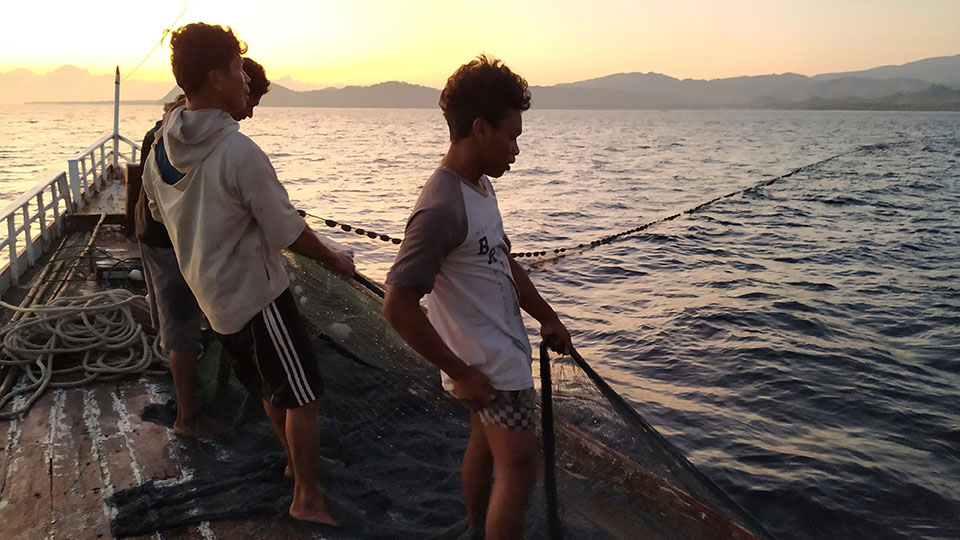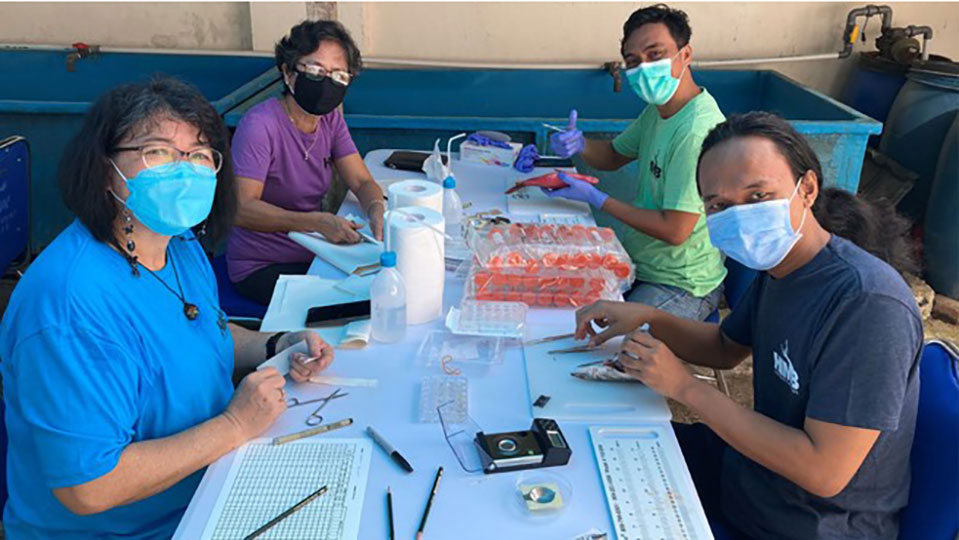
Tetra Tech is building local capacity to apply improved science, technology, and innovation in fisheries science and stock assessment to ensure a sustainable supply of fish for local populations.
Indonesia’s highly biodiverse marine ecosystems are critical natural and economic resources for the country’s economy. Its seafood industry—one of the world’s largest—generates approximately $5 billion in annual exports and supports the livelihoods of millions of Indonesians. In the last twenty years, Indonesia has recognized the importance of its fishery sector and made progress towards conserving marine environments and resources to sustain fishing levels. However, the health of fish populations and marine biodiversity continues to be threatened by overfishing, illegal, unreported, and unregulated fishing, destructive practices and technologies, and unsustainable management.
Benefits
- Developed first bilingual Handbook of Fisheries Science and Management Terminology
- Supported Komnas Kajiskan adoption of national Stock Assessment Review Protocol
- Created the University of Pattimura’s histology lab to produce fisheries management research
- Trained more than 500 stakeholders in fish reproductive systems
Through the Walton Family Foundation Supplemental Technical Assistance (STA) Project, Tetra Tech applied our Leading with Science® approach to advance the capacity of the Government of Indonesia’s Ministry of Marine Affairs and Fisheries (MMAF) and the National Commission on Fisheries Assessment, also known as Komnas Kajiskan. We helped strengthen their ability to improve the knowledge base of fish stock assessment to apply science-and evidence-based approaches and technologies to achieve sustainable fisheries management. Working collaboratively with MMAF, Komnas Kajiskan, leading Indonesian fisheries scientists and managers, the STA Project aimed to:
- Strengthen capacity of fisheries scientists at MMAF and academic institutions to generate the best scientific information
- Improve Indonesian fishery research products and stock assessments by standardizing scientific terminology
- Enhance the capacity and transparency of Komnas Kajiskan to provide rigorous review of stock assessments and defensible management recommendations
- Inform investments in fisheries science and stock assessments based on lessons learned and good practices for future replication
The STA Project built on the success and relationships developed through the U.S. Agency for International Development’s Indonesia Sustainable Ecosystems Advanced Project, which supported the Government of Indonesia to improve the governance of fisheries and marine resources at local, district, provincial, and national levels and conserve marine biological diversity.
[The STA Project] was able to accomplish the impact we were striving to have in improving the science and processes to support strong stock assessments and also to ensure science informs policymaking.
